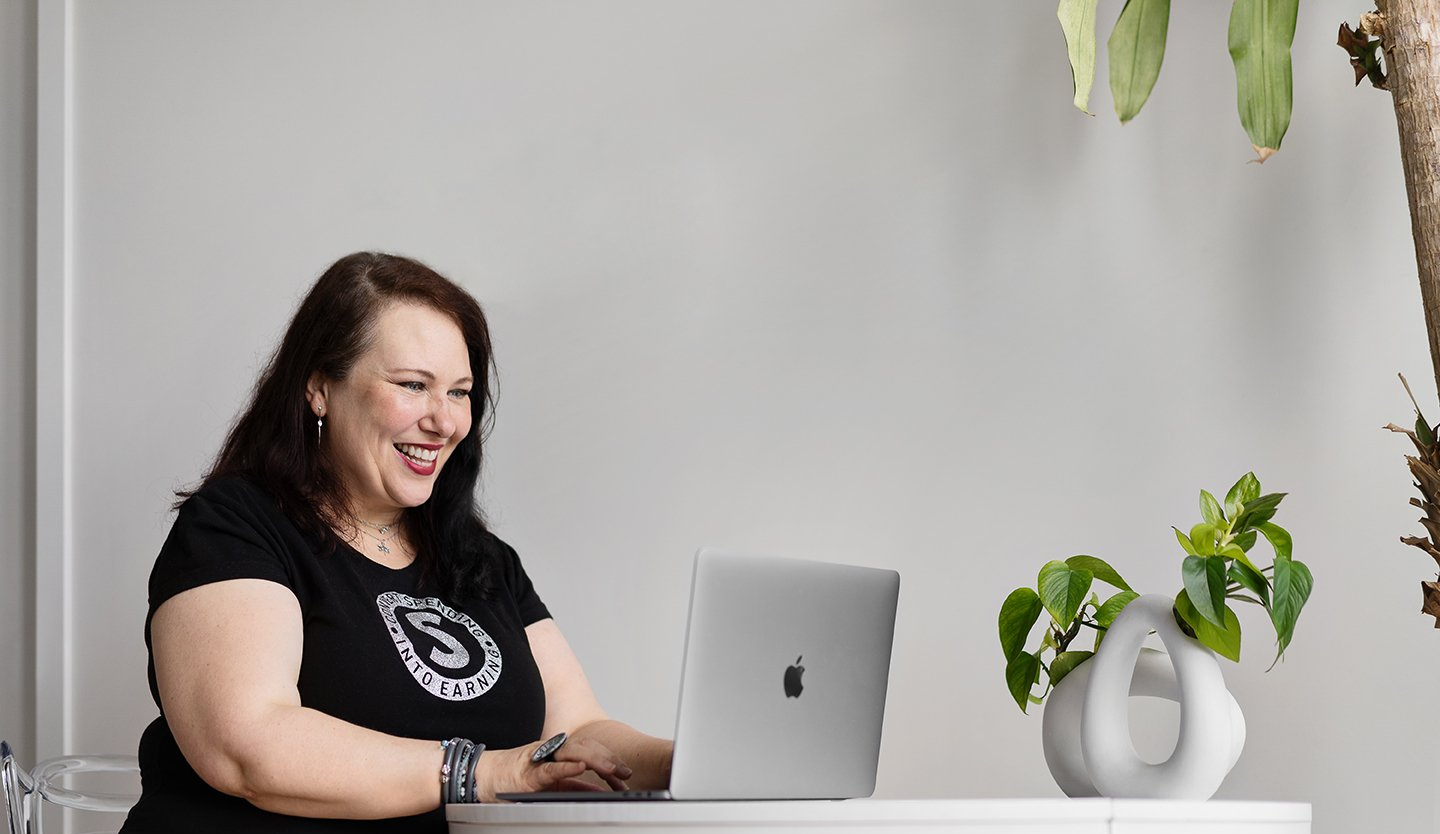The Promise of Flexible Work

The allure of the gig economy often lies in its promise of flexibility. You get to decide when you want to work, where you want to work from, and how much you want to work. It's a tempting offer, especially in a world where the traditional 9 to 5 setup can feel like a tight leash. Gig work offers a glimpse into a world where you can tailor your work schedule around your life, not the other way around. However, as many have found, this freedom can sometimes come at a cost. The unpredictable nature of gig work can often translate into long working hours or working during weekends and holidays to meet financial goals. This shift towards a flexible work culture beckons a closer look at how gig workers can achieve a work-life balance, ensuring they don’t burn the candle at both ends.
The gig economy springs from a simple yet profound premise: work when you want, how you want. This type of work setup has become particularly appealing to individuals who crave a break from the monotonous 40 hours a week routine that dominates the traditional workspace. The idea of waking up and choosing whether or not to work on a given day is liberating. This flexible working hours model seemingly offers a better work-life balance, allowing for more personal time, family time, and generally, a break from the rigid work schedule that characterizes the conventional full-time job.
However, the beauty of this promise lies in its potential to provide a work-life balance that many yearn for. Imagine being able to attend your child's midday school play without having to negotiate time off work or being able to take a spontaneous road trip on a weekday just because you feel like it. The appeal is undeniable, and for a moment, the gig economy seems like the answer to the age-old quest for a balanced life.
Yet, with every promise, there's a flip side. The flexibility in gig work can sometimes morph into a necessity for availability. When the work is there, the pressure to take it on can be high, especially when the bills start piling up. It’s not always rainbows and butterflies, especially when the unpredictable nature of gig work means a fluctuating income.
Moreover, the allure of more earnings can sometimes blur the line between work and personal time. The "work more, earn more" mantra can slowly creep in, leading to a scenario where one finds themselves working long hours to make ends meet or to save up for a rainy day.
But does it have to be this way? Is there a middle ground where gig workers can enjoy the flexibility without spiraling into a work vortex? As we delve deeper into the workings of the gig economy, it’s time to look at the real impact of flexible work schedules on the work-life balance and how to navigate the tightrope between flexibility, productivity, and personal well-being.
In the following sections, we will explore the reality behind the long working hours in gig work, the impact on personal life, and strategies to maintain a balanced lifestyle amidst the demands of a flexible work schedule. Through real stories, expert insights, and a closer look at the working conditions of gig work, this article aims to provide a clearer picture of what it truly means to have a flexible work schedule in the gig economy.
The Reality of Long Working Hours
The lure of flexible work often hides the reality of the number of hours one might need to put in to meet financial goals. It's not uncommon for gig workers to find themselves working long hours, sometimes even more than a traditional full-time job. The unpredictability of gig work means that some days might be bustling with opportunities, while others are starkly quiet. This inconsistency can lead to an inclination to work more hours when the work is plentiful, to compensate for the quieter days.
In a study, it was found that gig workers tend to work 40 hours a week on average, with some even pushing beyond the traditional 40 to 60 hours a week. The mantra often becomes 'work more to earn more,' especially in busy seasons or during high demand times. The result? The boundaries between work and personal time can become blurred, leading to a scenario where you’re still working at the end of what should have been a relaxing day at home.
Moreover, the idea of working less may seem feasible theoretically, but in practice, the financial necessities often dictate the working hours. And in a bid to maximize earnings, the ‘flexible working hours’ could translate to ‘working all available hours.’ The pressure to keep working to maintain a steady income can overshadow the initial allure of a flexible work schedule.
The Impact on Personal Life
The ripple effects of long working hours seep into personal lives, affecting relationships, mental health, and overall quality of life. The original desire for a work-life balance morphs into a constant juggle between work commitments and personal obligations.
Let’s consider family time, a core aspect of personal life. The ability to spend time with family or attend important family events becomes a challenge when engulfed in endless work tasks. Moreover, the strain of working long hours can spill over into personal relationships, causing tension or misunderstanding. The same goes for social interactions; being tied to work might mean missing out on social events or simply not having enough time to nurture friendships.
Moreover, the psychological toll can't be underestimated. The stress of managing an unpredictable work schedule, coupled with the pressure to work more hours to meet financial goals, can lead to burnout. The idea of working for someone else, with a set number of hours and a predictable paycheck, might start to seem appealing again.
Additionally, the lack of a clear demarcation between work hours and personal time can hinder relaxation and rejuvenation. The opportunity to work at any time can turn into a compulsion to work all the time, especially when working from home. The home, a place of rest, slowly morphs into a workspace, with little to no separation between work and personal life.
The impact extends to health and wellness too. The hours spent working might replace the time spent on physical activities or attending to health needs. Furthermore, the lack of vacation time or time off work, inherent in many gig work setups, can exacerbate stress and lead to a cycle of continuous work with little to no rest.
In the subsequent sections, we'll explore strategies to circumvent these challenges, drawing a clear line between work and personal time, and ensuring that the promise of flexibility doesn’t become a pathway to work-life imbalance. Through real-life stories and practical tips, we'll delve into how to maintain a sense of balance and well-being in the gig economy.
Strategies for a Balanced Gig Work Life
Achieving a balanced gig work life may seem like a tall order, but it's not unattainable. With the right strategies, it's possible to enjoy the benefits of flexible work while maintaining a healthy work-life balance. Here are some practical steps:
- Set Clear Boundaries:
- Establish a clear work schedule, even if it's flexible. Having set working hours can help separate work time from personal time. It also provides a sense of routine and structure amidst the fluidity of gig work.
- Utilize Productivity Tools:
- Employ tools and apps designed to enhance productivity and manage time effectively. Tools like time trackers, project management apps, and automated invoicing can save a lot of time and reduce the administrative burden.
- Prioritize Tasks:
- Prioritize your tasks based on urgency and importance. This way, you can ensure that crucial tasks are completed within your working hours, leaving personal time untouched.
- Learn to Say No:
- It's tempting to take on every available gig, especially when the work is flowing in. However, learning to say no and choosing gigs that align with your schedule and financial goals is crucial for maintaining a balanced work-life.
- Outsource Administrative Tasks:
- Consider outsourcing administrative tasks or employing virtual assistants to handle aspects like invoicing, marketing, or customer service. This can free up more time for both work and personal pursuits.
- Maintain a Dedicated Workspace:
- If you work from home, having a dedicated workspace can help create a mental and physical boundary between work and personal life. This can also enhance productivity and reduce distractions.
- Take Time Off:
- Schedule time off work to rest and rejuvenate. It's essential to have downtime to prevent burnout and maintain a fresh perspective in your work.
- Connect with a Supportive Community:
- Join communities of gig workers where you can share experiences, gain insights, and find support in navigating the unique challenges of gig work.
By implementing these strategies, the aspiration for a balanced gig work life can transition from a mere wish to a lived reality.
Stories about Work-Life Balance from the Gig Frontlines
The theory and strategies are well and good, but nothing beats hearing from those in the trenches. Here are some real-life experiences from gig workers who have navigated the fine line between flexibility and a balanced life.
- The Part-Time Gig Worker:
- Meet Sarah, who chose to work part-time in the gig economy to spend more time with her kids. She narrates how setting clear working hours and sticking to them has helped maintain a boundary between work and family time.
- The Full-Time Freelancer:
- John, a full-time freelancer, shares his journey of finding a rhythm that allows him to meet his financial goals without compromising on personal time. He emphasizes the importance of scheduling time off work and utilizing productivity tools to manage his workload efficiently.
- The Weekend Warrior:
- Emily dives into her experience of working primarily over the weekends to keep her weekdays free for other pursuits. She discusses the importance of having a rigid work schedule, even in a flexible work setup, to ensure she doesn’t end up working long hours unintentionally.
- The Digital Nomad:
- Michael talks about the freedom of working from anywhere and how it has enriched his life. However, he also touches on the challenges of managing work while on the road all the time and how setting clear work boundaries has been a game-changer.
- The Side Hustler:
- Jake shares his experience of juggling a full-time job with gig work. He talks about how dedicating specific hours of work for his side hustle has helped maintain a semblance of work-life balance.
These stories from the gig frontlines provide a glimpse into the practical aspects of striving for a work-life balance in the gig economy. They highlight the importance of setting boundaries, managing time effectively, and having a support system to navigate the flexible yet demanding nature of gig work successfully.
Tools and Resources to Help You Work When you Want to Work
In the digital age, a plethora of tools and resources are available to assist gig workers in managing their work and achieving a semblance of work-life balance. Here are some noteworthy mentions:
- Time Management Apps:
- Applications like Toggl or RescueTime can help keep track of the hours spent working on projects. They provide insights into your productivity patterns and help manage your time efficiently.
- Project Management Tools:
- Tools such as Trello or Asana are excellent for organizing your tasks and projects. They help keep everything in one place, making it easier to manage your workload and deadlines.
- Financial Management Apps:
- Managing finances is crucial for gig workers. Apps like QuickBooks or FreshBooks can help track earnings, expenses, and simplify the invoicing process.
- Online Communities:
- Platforms like Reddit or specialized forums provide a space for gig workers to connect, share experiences, and offer support. Engaging with a community facing similar challenges can provide valuable insights and solutions.
- Online Courses:
- Numerous online platforms offer courses on time management, productivity, and other essential skills for gig workers. Investing in learning can significantly enhance your efficiency and work-life balance.
- Mental Health Resources:
- Maintaining mental health is vital. Resources like Headspace or online counseling services can be beneficial for managing the stress that comes with gig work.
- Virtual Assistants:
- Services like Upwork or Fiverr provide access to virtual assistants who can handle administrative tasks, freeing up more time for you to focus on core work tasks or enjoy outside of work.
- Legal and Insurance Resources:
- Platforms like LegalZoom or insurance providers specializing in gig workers can be essential resources to ensure you're protected while working.
By leveraging these tools and resources, gig workers can better manage their workload, finances, and overall well-being, moving closer to the elusive work-life balance.
The journey through the gig economy is filled with both promise and pitfalls. The allure of a flexible working time, being your own boss, and escaping the traditional 40-hour work week is undeniably appealing. However, the reality of the demands and unpredictability inherent in gig work can often lead to a blur between work and personal life.
Through real-life stories and practical strategies, we've explored how to navigate the fine line between enjoying the flexibility of gig work while maintaining a balanced life. The tools and resources highlighted offer a pathway to better manage the demands of gig work, ensuring that the freedom doesn’t come at the cost of personal well-being.
As the gig economy continues to evolve, the conversation around achieving a work-life balance within this modern work paradigm will continue to be pertinent. It's a dialogue that necessitates a collective effort from gig workers, platform providers, and policymakers alike. But with the right approaches and resources, achieving a satisfactory work-life balance in the gig economy is within reach.
Remember, it’s about working smarter, not harder, and ensuring that the gig work lifestyle serves you, not the other way around.
Unveiling the YOU Economy: Seize Control, Earn on Your Terms
In the dynamic realm of gig work, gaining mastery over who you collaborate with and how you harness technology to your benefit is vital. It's about sculpting a work ambiance that harmonizes with your core values and ambitions. If the idea of venturing onto a path that furnishes more control and a balanced fusion of technology and personal rapport intrigues you, this is an opportunity you'll want to seize.
Realize the Potential of the YOU Economy
Delve into how a 31-year-old trailblazing company has been orchestrating the YOU Economy, a vibrant ecosystem that enables individuals to earn on their own terms. This narrative transcends the traditional gig economy framework, propelling you to the driver's seat of your work journey.
Poised for Exploration?
The voyage towards a more regulated and gratifying work sphere commences here. Join an information-only zoom and get the details. Just register here - ZOOM REGISTRATION
I Woke Up Awesome Blog











